President Donald Trump has sharply criticized the World Health Organization and its director-general, Tedros Adhanom Ghebreyesus, for months. The administration’s dissatisfaction resulted in a decision last month to “halt funding of the World Health Organization while a review is conducted to assess the World Health Organization’s role in severely mismanaging and covering up the spread of the coronavirus.”
This week, Trump sent a letter to Tedros threatening to make this temporary funding freeze permanent and reconsider U.S. membership in the organization, unless the WHO commits to major “substantive improvements within the next 30 days.”
The president is right to point out that, had China been more transparent and cooperative, many lives could have been saved and economic damage avoided in the U.S. and around the world.
>>> When can America reopen? The National Coronavirus Recovery Commission, a project of The Heritage Foundation, is gathering America’s top thinkers together to figure that out. Learn more here.
Likewise, the president is correct in that the World Health Organization was too willing to take Chinese assurances at face value and too slow to respond to the initial COVID-19 outbreak.
The WHO needs to be held accountable and reformed to prevent this neglect from occurring in the future.
The U.S. has highlighted this need effectively to other governments, as demonstrated by the widespread support for a resolution in the World Health Assembly calling on the WHO to work with other organizations to “identify the zoonotic source of the virus and the route of introduction to the human population.”
The resolution also calls on the World Health Organization to initiate, at the earliest possible moment, an “impartial, independent and comprehensive evaluation … to review experience gained and lessons learned from the WHO-coordinated international health response to COVID-19.”
The U.S. rightly wants to capitalize on the widespread recognition of the mishandling of the COVID-19 outbreak by China and the WHO by pressing for reforms. If implemented properly, the independent evaluation approved this week should be an excellent foundation to begin the campaign for the very reforms that Trump desires.
The U.S. welcomed the independent evaluation and should concentrate on maximizing its impact. Doubtless China and the WHO will seek to delay this evaluation as long as possible. The U.S. should insist on more immediate action.
Specifically, the U.S. should insist that the World Health Organization initiate the process within the 30-day window mentioned in the president’s letter, including selection of individuals to conduct the evaluation, securing WHO documentation for review, and commencement of operations.
In particular, the U.S. should use its influence to make sure that the evaluation is truly impartial and populated by independent individuals with the integrity to resist the political pressures from WHO staff, member states, or affiliated nongovernmental organizations that are likely to accompany such an exercise.
Concurrently, the U.S. should conduct its own evaluation of reforms that it would like to see adopted and seek support from other member states to amend the International Health Regulations and the funding and structure of the WHO to better prepare the world for the next pandemic.
The U.S. then needs to recruit other nations, help them clearly understand the stakes of inaction, and explain why the reforms the U.S. seeks would address the problems at the WHO exposed by the pandemic.
Finally, the U.S. should view the evaluation for what it is—a means through which to bring other countries to support U.S. reform efforts.
The WHO is an international organization, and enacting permanent reforms and changes requires support from other countries. Most other governments move more slowly than the U.S. and will depend on the results of this evaluation to justify reforms and changes to the World Health Organization.
A U.S.-imposed deadline does add pressure for the international community to act, but the U.S. must use the pressure to bring along governments sympathetic to its criticisms. That’s the best way to push back on China.
If the WHO does not reform, the U.S. may have no choice but to withdraw and seek to establish an alternative organization to address global pandemics.
But that road is challenging and may not lead to success. Far better to try to rally support for reforming the World Health Organization first, even if it takes longer than 30 days.


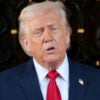










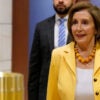
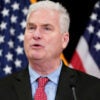












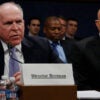


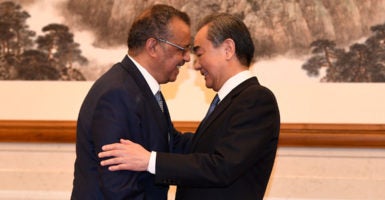
One Reply to “WHO Is a Mess, but America Can’t Reform It Alone”